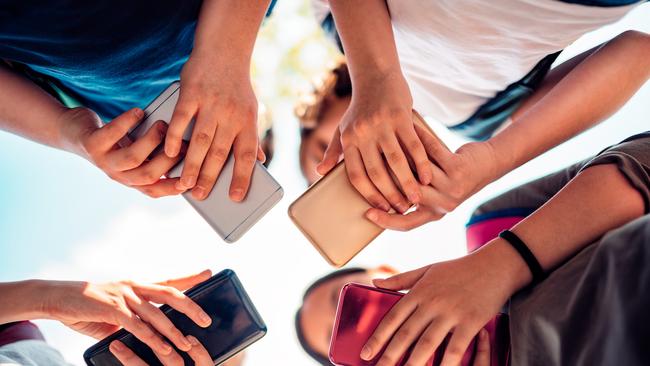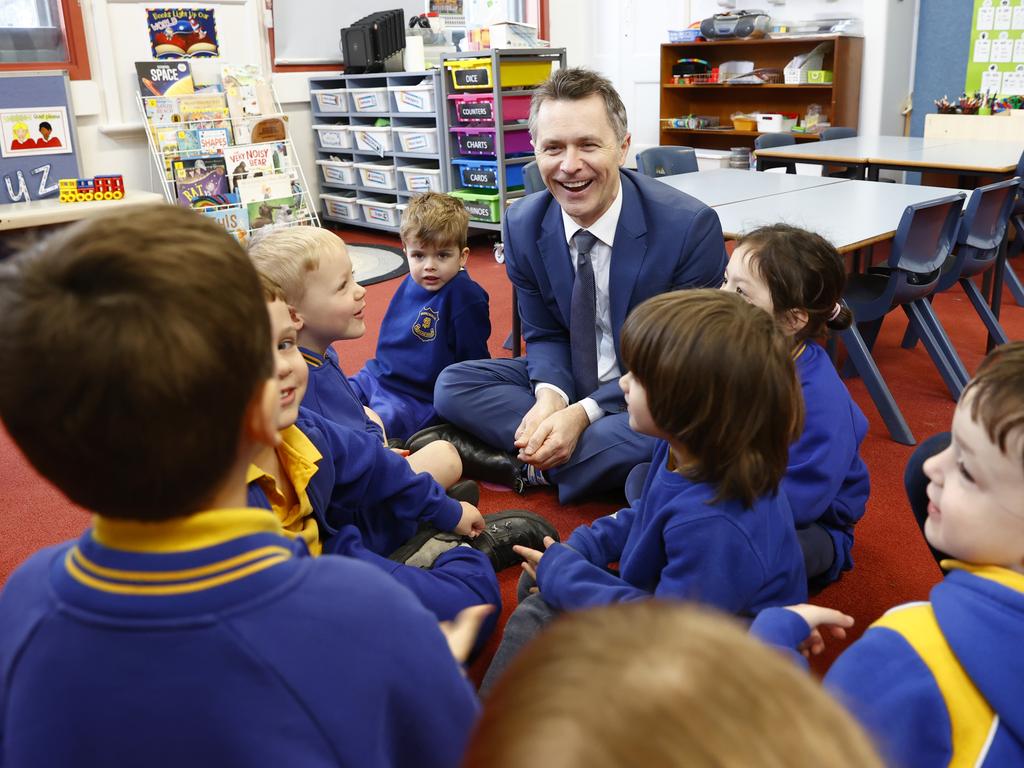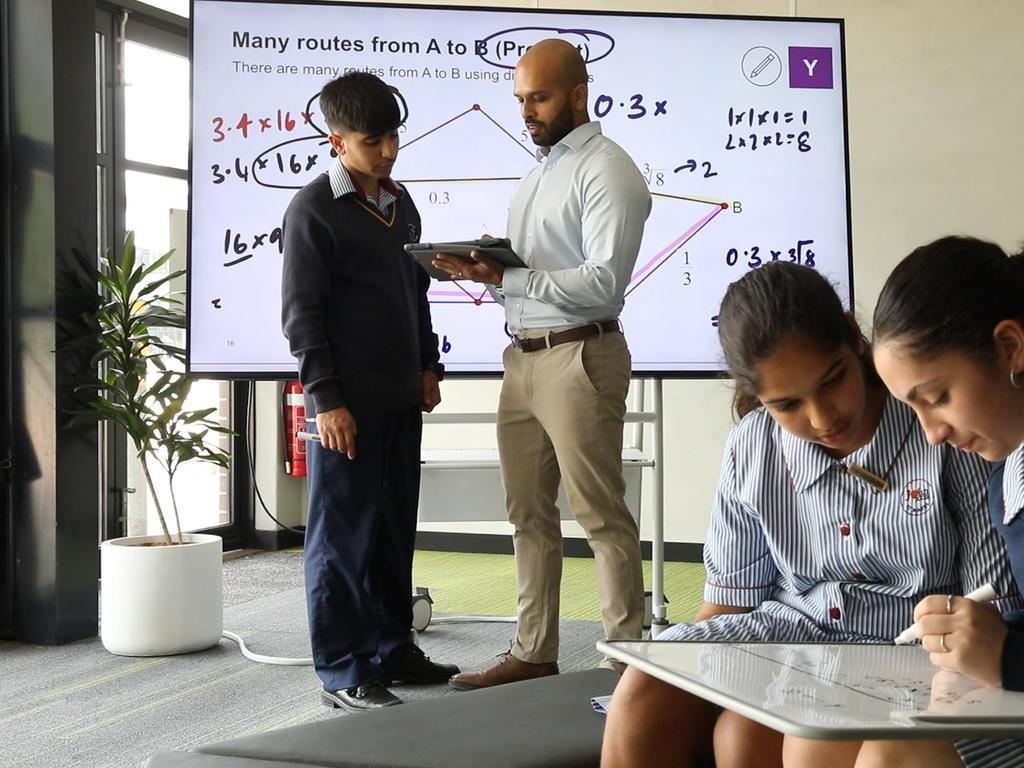Smartphone obsessions are dumbing down Australian kids, OECD testing reveals
School results stagnate at the lowest level in two decades. Have a look at this sample literacy question. How would you answer it?

Addictive online gaming and digital distractions are dumbing down a generation of Australian teenagers as school results stagnate at the lowest level in two decades, the latest global testing reveals.
The alarming link between hi-tech play and declining levels of numeracy and literacy has been spotlighted for the first time by the Organisation for Economic Cooperation and Development, which warned on Tuesday night that gaming and social media use is driving “poor results’’ in schools worldwide.
OECD testing reveals that half Australia’s teenagers lack the mathematical ability expected at the age of 15, meaning they would fail to convert currency or calculate the price of an item on sale in a shop.
And 43 per cent of Australian teenagers cannot read to the minimum standard needed to interpret information on a public transport map.
Today’s students are lagging a year behind students who took the test 20 years ago, before the advent of smartphones and social media.
The dismal results are revealed in the OECD’s latest Program for International Student Assessment, which tested 690,000 15-year-old students from 81 countries last year in maths, science and reading.
Australia’s 20-year slide in academic outcomes plateaued last year, as Australian students leapfrogged struggling teenagers from countries that were hit harder by Covid-19 pandemic lockdowns.
Australia now ranks 10th in the world in mathematics, and ninth in science and reading.
But students in Asian nations remain at least four years ahead of Australian students in mathematical literacy; Singapore, Macao, Chinese Taipei, Hong Kong, Japan and Korea are the top six performing nations.
Australia is on par with Britain and Ireland, but performs better than the United States and Germany.
The OECD warned on Tuesday night that digital distractions are lowering students’ school results across the world.
Its data shows Australian students who spend more than three hours a day using digital devices for “leisure’’ – such as gaming or social media – performed in the maths test at a level nine months behind classmates who did not use smartphones or laptops for fun.
“Technology used for leisure rather than instruction, such as mobile phones, often seems to be associated with poorer results,’’ the OECD states in its report.
“Students who use them more than an hour a day for leisure – social media apps, browsing the internet or games – saw a big drop in maths scores.
“Students who reported that they become distracted by other students who are using digital devices in at least some mathematics lessons scored 15 points lower than students who reported that this never or almost never happens, after accounting for students’ and schools’ socio-economic profile.
“This represents the equivalent of three-quarters of a year’s worth of education.’’
Forty per cent of Australian students reported that they were distracted in class by digital devices in “every or most of their mathematics lessons’’, the OECD found, based on its survey of the 13,437 students in 743 Australian schools who sat the tests last year.
Just 5 per cent of the high-performing Japanese students reported distractions from digital devices in class.
Last year’s test was taken before the nation’s education ministers voted this year to ban the use of smartphones in schools, although Queensland will not enforce the ban until next year.
The OECD report warns that smartphones used for leisure can “distract from learning, expose students to cyber bullying and compromise their privacy’’.
“They are also highly addictive,’’ it states.

Mathematician Andreas Schleicher, OECD director for education and skills, said that for some students, “the digital world has become the real world’’.
He said Australian students reported one of the highest rates of using digital devices for leisure during class time.
“When technology is used for learning, embedded into instructional design, the relationship between the hours of technology used and math performance is largely flat,’’ he said.
“But when technology is used for leisure, you can see steeply declining learning outcomes.
“So students playing with their smartphones and tablets seems to be the real issue – you can see a clear negative correlation.
“The only thing that clearly linked to less distractions was a ban of smartphones at school.’’
Mr Schleicher said the student survey found that many teenagers felt anxious when they were without their digital devices.
“They’re also less happy with their lives, they have a harder time managing themselves, they are less resistant to stress,’’ he said.
Mr Schleicher warned that with the rise of artificial intelligence and chatbots such as ChatGPT, “we should worry about the use of technology by students’’.
He said there were “signs that technology use has made learning more superficial, more reactive, and sometimes more scripted”.
Mr Schleicher cautioned that AI could “amplify social inequality’’ if well-heeled parents insisted their children study at school, and those from poorer families did not.
“If you’ve come from a disadvantaged background you might say, ‘Why should I learn all this stuff? I can just use Chat GPT’,’’ he said.
“Students from privileged backgrounds might have parents who say, ‘Well, you’ve got to learn it, you have to do well’, and so on.’’
The PISA data exposes an alarming divide between the achievement of teenagers living in cities or in rural areas, those from wealthy or poor families, and between First Nations and non-Indigenous students.
The Australian Council for Educational Research on Tuesday said the PISA results “may have stemmed a long-term decline in performance’’.
“While it’s encouraging that Australia’s results have stabilised, it’s important to recognise that our position in the top 10 is largely due to the performance of other countries dropping below ours,’’ ACER senior research fellow Lisa De Bortoli said.
“Just over half of Australian students achieved the national proficient standard – 51 per cent in maths, 58 per cent in science and 57 per cent in reading.
“A significant number of students are failing to demonstrate they have more than basic skills in those areas … it’s not the time for complacency.’’
The PISA results show Australian boys are six months ahead of girls in maths, on average, while girls are performing a year ahead of boys in reading.
The testing shows 12 per cent of Australia’s 15-year-olds are “high achievers’’ in maths – compared to 41 per cent in Singapore.
A quarter of Australian students – and 43 per cent of teenagers from the poorest families – performed at the lowest level, compared to just 8 per cent of students in Singapore.
OECD Secretary-General Mathias Cormann – Australia’s former finance minister – said the PISA study showed students fare better at school when parents show an interest in their learning.
“This was particularly true for disadvantaged students,’’ he said.
“These figures show that the level of active support that parents offer their children might have a decisive effect.’’
Mr Cormann said parental involvement in students’ learning at school had “decreased substantially” since the pandemic.








To join the conversation, please log in. Don't have an account? Register
Join the conversation, you are commenting as Logout